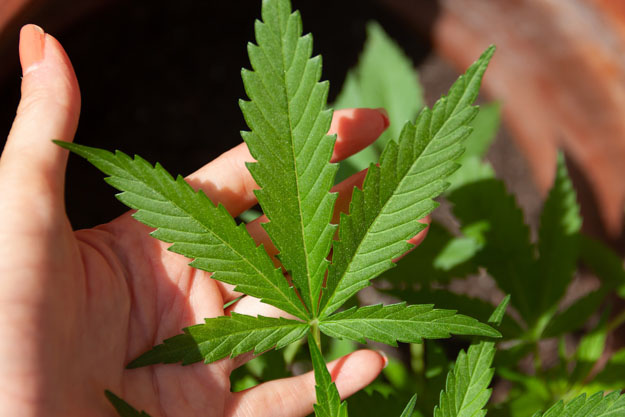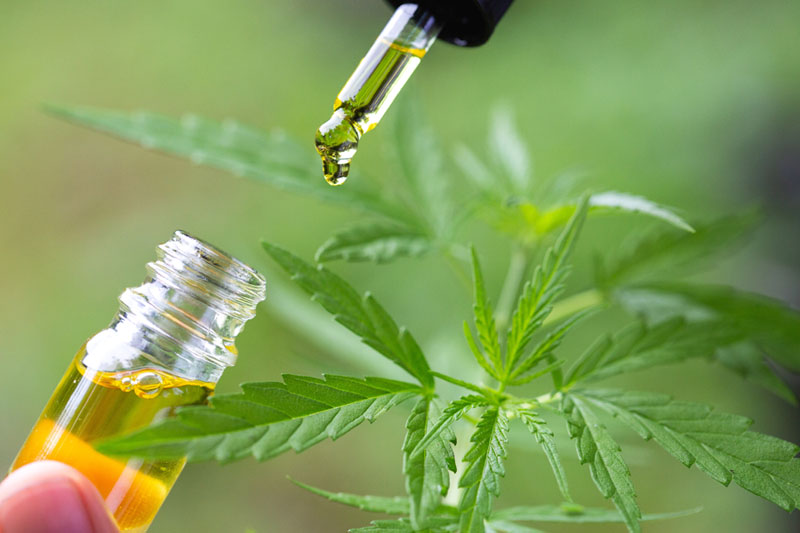Have a question? 06 70 73 89 02
🔞 Not for sale to under 18s
🌱 -20% with code FRENCHDOO 😁
Have a question? 06 70 73 89 02

Schizophrenia is a chronic and particularly serious mental illness.. It is classified as a psychosis, accompanied by obsessions and resulting in a "loss of contact with reality".
This mental disorder is relatively common, affecting 600,000 people in France and approximately 1% of the world's population[1].
Schizophrenia is a complex pathology with a variety of symptoms including, schematically, a disturbed image of reality, with alterations in sensory processing (hallucinations) and delusional thoughts; the pathology is generally accompanied by difficulties in planning goal-oriented actions and, finally, it includes relational withdrawal.
> Specialists classify symptoms into 3 groups:
These are the most impressive. They include delusional and eccentric thoughts, a feeling of persecution or paranoia and hallucinations of the senses, the most common being auditory hallucinations, in the form of imaginary voices[2].
The subject is emotionally impoverished and withdraws from social life: he communicates less, has limited willpower and shows reduced emotionality[3].
It includes a loss of coherent thinking, with difficulties in understanding or being understood.
The subject has attention problems(difficulty concentrating) and memory problems: this may be so severe as to make it difficult or impossible to carry out simple everyday tasks (work, shopping).
> Schizophrenia is not a sudden-onset illness. It begins with attenuated symptoms that are often not exclusive.
While positive (or excess) symptoms will help the diagnosis, deficits can be interpreted as depression, which can delay diagnosis for years[3].

Hospitalization is often required for the first episode (delusions).
Left untreated, schizophrenia can lead to depression, anxiety, phobias, family conflicts, drug and alcohol abuse, social isolation and suicide attempts..[4]
People with schizophrenia are at high risk of suicide.
Schizophrenia has no single known cause. Like many other mental illnesses, it seems to be due to a combination of factors.
- a biological explanation. Disturbed activity of neurotransmitters such as dopamine and serotonin.
- An environmental explanation, with an established role for stress and cannabis (particularly in teenagers)
- a genetic explanation: when a family member suffers from schizophrenia, the risk of another family member contracting the disease is 10 times higher than in a family without the disease[5].
Medication, mainly neuroleptics, can alleviate symptoms and reduce relapse rates, but they do not "cure" it. A cognitive-behavioral therapy approach is often added.

Cannabidiol, or CBD for short, is a molecule derived from the hemp flower (cannaibis sativa L.), like THC. Unlike THC, it has no psychotropic effects.
A 2019 study devoted to CBD as a potential treatment for schizophrenia[6] introduces the topic thus:
The discovery of dopamine in the 1950s revolutionized the treatment of psychotic disorders, including schizophrenia. Neuroleptics, which act on dopamine levels, remain the mainstay of the schizophrenia treatment arsenal. However, a significant proportion of patients do not respond to traditional antipsychotics, or do so incompletely. What's more, most current antipsychotics target only the so-called "positive" symptoms of schizophrenia, with little effect on negative or cognitive symptoms.
Finally, dopaminergic antipsychotics are also associated with a number of side effects, some of which can be severe.
A clinical study carried out in 2012[7], double-blind on 39 patients with severe psychotic disorders. Patients were treated with CBD or amisulpride 800 mg for four weeks.
Amisulpride is a neuroleptic drug (sold under the brand names Solian, Deniban or Amitrex).
Both treatments, CBD or this neuroleptic, showed clinical improvement.
Also in this study, researchers measured anandamide levels in blood serum before and after treatment with CBD or amisulpride and its relationship to psychotic symptoms.
Anandamide is a neurotransmitter involved in the regulation of mood, memory, appetite, pain, cognition and emotion.
Compared with treatment with amisulpride, CBD showed a significant increase in anandamide levels and this was associated with improvement in psychotic symptoms.
These results suggest that anandamide levels could serve as a possible biomarker for the efficacy of CBD treatment.
As mentioned in the introduction, the use of antipsychotic drugs is associated with frequent side effects*[8], which have a considerable influence on long-term compliance.
Side effects of amilsulpride according to Vidal :
- In more than 10% of cases: muscle stiffness, tremors, abnormal movements, hyper salivation.
- In 1 to 10% of cases: insomnia, anxiety, agitation, weight gain, sexual problems.
According to the 2012 clinical study already mentioned, treatment with CBD was associated with a lower risk of extrapyramidal symptoms*, less weight gain and a lower increase in prolactin, which is a predictor of sexual dysfunction.
* Side effects are reversible on discontinuation of treatment.
* Slow movements, rigidity, tremors at rest.
A Dutch study published in July 2019[9] conducted a six-week placebo-controlled randomized clinical trial to evaluate the effect of treatment with CBD (1000 mg / day), in addition to their usual treatment with antipsychotic drugs.
This large-scale test was carried out on 88 outpatients (day hospital) with "moderate" schizophrenia. After six weeks, positive symptoms (mainly hallucinations) and overall clinical impression improved significantly in the CBD group compared with placebo. The study thus suggests that CBD treatment for schizophrenia is beneficial; and that it may eventually be as effective as antipsychotic drugs.
" CBD may normalize affective and cognitive deficits (disorganization) associated with schizophrenia ": February 2017 study.[10]
Finally, the recent 2019 study concludes that in both cases: ' CBD, as therapy alone or as a supplement to usual antipsychotic medications, improved symptoms in patients with schizophrenia, with particularly promising effects in the early stages of the disease '.

Two methods are particularly effective for taking cannabidiol: vaporizing CBD flowers and oil. For CBD oil, simply place a few drops under the tongue for just over thirty seconds. Although cannabidiol has no side effects, and because everyone reacts differently to cannabinoids, it' s advisable to start with the lowest dose and then gradually increase the dose until relief is achieved.